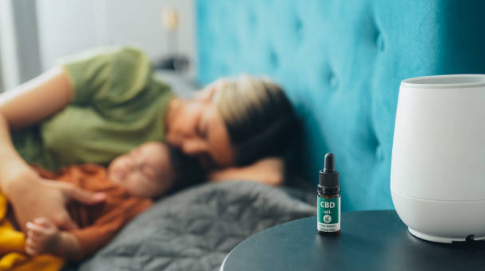
Source: Gittyimages
Cannabis has moved from being a controversial subject to a widely researched plant with proven health effects. For adults considering cannabis for medical or recreational purposes, understanding its impact on the body is essential, and options like weed delivery make accessing quality products easier for those seeking safe and informed use. Knowing the science-backed facts helps promote safe cannabis use and allows individuals to make informed decisions.
Here are the top 5 health-related facts about cannabis that every adult should know, ranging from its effects on the body to its potential wellness benefits. In discussing access and convenience, this guide highlights weed delivery Elk Grove as an option that makes it easier for local adults to explore these benefits safely. By understanding both the science and the practical ways to obtain cannabis, readers can make more informed choices about responsible use.
1. Cannabis Affects the Endocannabinoid System
How Does Cannabis Interact With the Body?
Cannabis works by interacting with the endocannabinoid system (ECS), a network of receptors in the brain and body that regulates pain, mood, appetite, and sleep.
- THC binds to CB1 receptors, producing psychoactive effects such as euphoria and altered perception
- CBD interacts with CB2 receptors, influencing immune response and inflammation without intoxication
- The ECS helps maintain balance in the body, also called homeostasis
Understanding this system explains why cannabis can impact so many different health conditions.

Source: Gittyimage
2. Cannabis Can Help With Pain and Inflammation
Can Cannabis Really Relieve Pain?
Yes, pain management is one of the most researched benefits of cannabis. Studies show cannabinoids can reduce neuropathic and chronic pain by influencing pain pathways.
- A meta-analysis published in The Journal of Pain found that cannabis reduced pain intensity by 30 to 40 per cent
- CBD and THC work together to lower inflammation, making cannabis useful for arthritis and autoimmune conditions
- Many adults use cannabis as an alternative to opioids, which carry a higher risk of dependence
For those struggling with chronic pain, cannabis may provide a safer option when used responsibly.
3. Cannabis Can Affect Mental Health
Does Cannabis Improve or Worsen Mental Health?
The relationship between cannabis and mental health is complex. For some, cannabis reduces anxiety and supports relaxation. For others, especially at high doses, it may increase stress or trigger paranoia.
- Low doses of CBD may reduce anxiety and improve mood
- High THC levels can increase the risk of anxiety, panic, or short-term memory issues
- Long-term heavy use may contribute to dependency or worsen pre-existing mental health conditions
Adults should consider their mental health history before using cannabis and start with small doses.
4. Cannabis Impacts Sleep and Recovery
How Does Cannabis Influence Sleep Quality?
Cannabis is commonly used as a natural sleep aid. Both THC and CBD affect sleep in different ways.
- THC may shorten the time it takes to fall asleep
- CBD may reduce racing thoughts and nighttime anxiety
- Research shows cannabis helps people with insomnia, PTSD, and restless leg syndrome improve sleep quality
In addition to sleep, cannabis aids physical recovery by reducing inflammation and supporting muscle repair, making it popular among athletes.

Source: Gittyimages
5. Cannabis Is Not Risk-Free
What Are the Health Risks of Cannabis?
Despite its benefits, cannabis use comes with potential risks, especially if misused. Responsible consumption is essential.
- Smoking cannabis may harm the lungs, though vaping or edibles reduces this risk
- Heavy long-term use can affect memory and concentration
- Cannabis use during pregnancy is not recommended due to potential dangers for infant development
- Mixing cannabis with alcohol increases impairment and side effects
Adults should always consider these risks and make informed decisions about when and how they use cannabis.
FAQs About Cannabis and Health
Is Cannabis Addictive?
Cannabis is less addictive than alcohol or nicotine, but can still cause dependency in about 9 per cent of adult users.
Can Cannabis Replace Prescription Medications?
In some cases, yes. Cannabis may reduce reliance on painkillers or sleep medications, but medical supervision is necessary.
What Is the Difference Between Medical and Recreational Cannabis?
Medical cannabis is prescribed for specific conditions such as pain, epilepsy, or PTSD. Recreational cannabis is used without medical supervision, often for relaxation or enjoyment.
Is CBD Safer Than THC?
Yes, CBD is non-intoxicating and generally well tolerated, while THC carries a higher risk of psychoactive effects and dependency. Insights from NorCal Holistics emphasize that choosing between CBD and THC depends on individual needs and goals.
Conclusion
Cannabis can be beneficial for pain relief, stress reduction, sleep, and recovery, but it is not risk-free. By understanding how cannabis affects the body, adults can make informed decisions about whether it fits into their health and wellness routine.
The top 5 facts highlight both the potential benefits and the risks, emphasising the importance of responsible and mindful use.
If you are considering cannabis, consult a healthcare provider and choose high-quality products. Responsible consumption ensures cannabis supports your health rather than harms it.